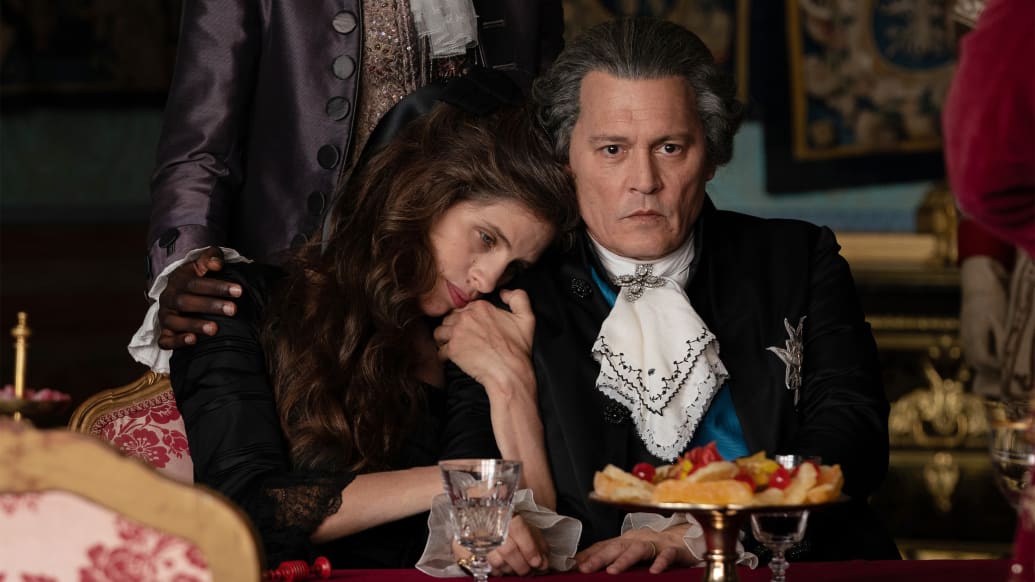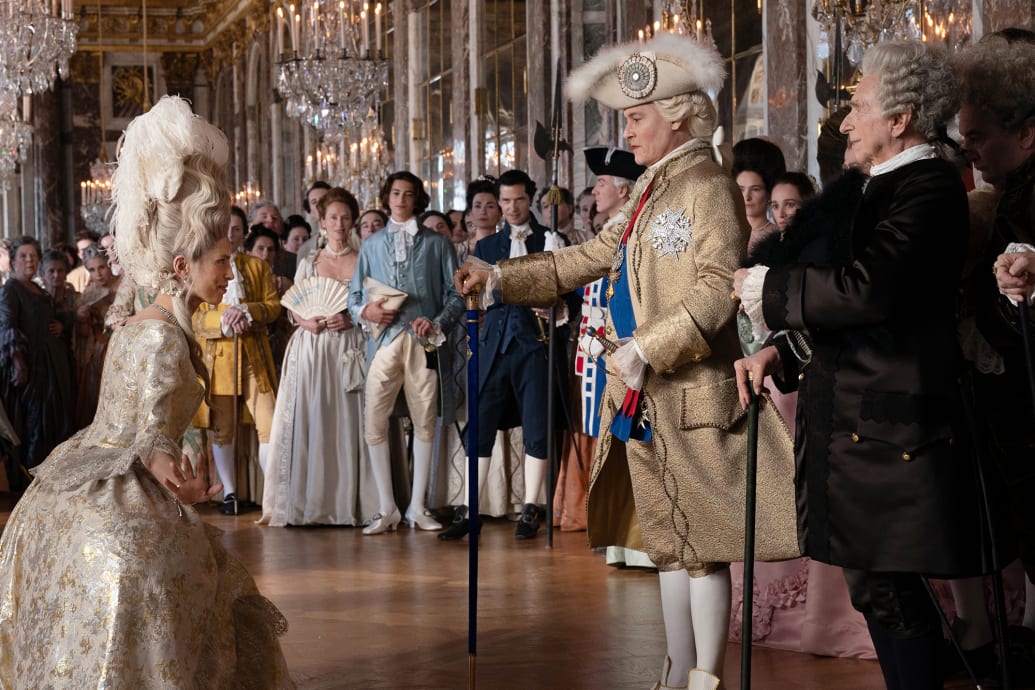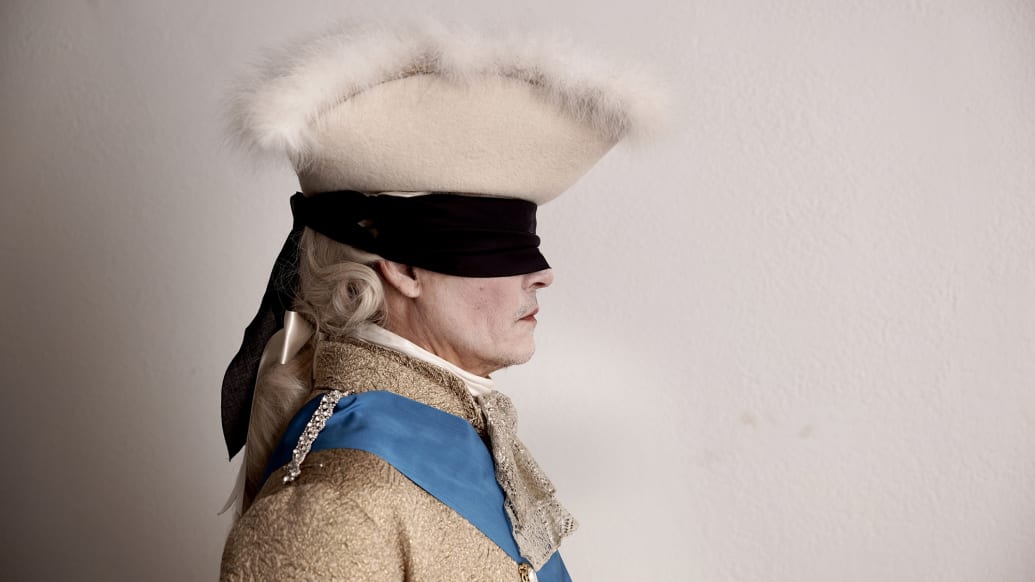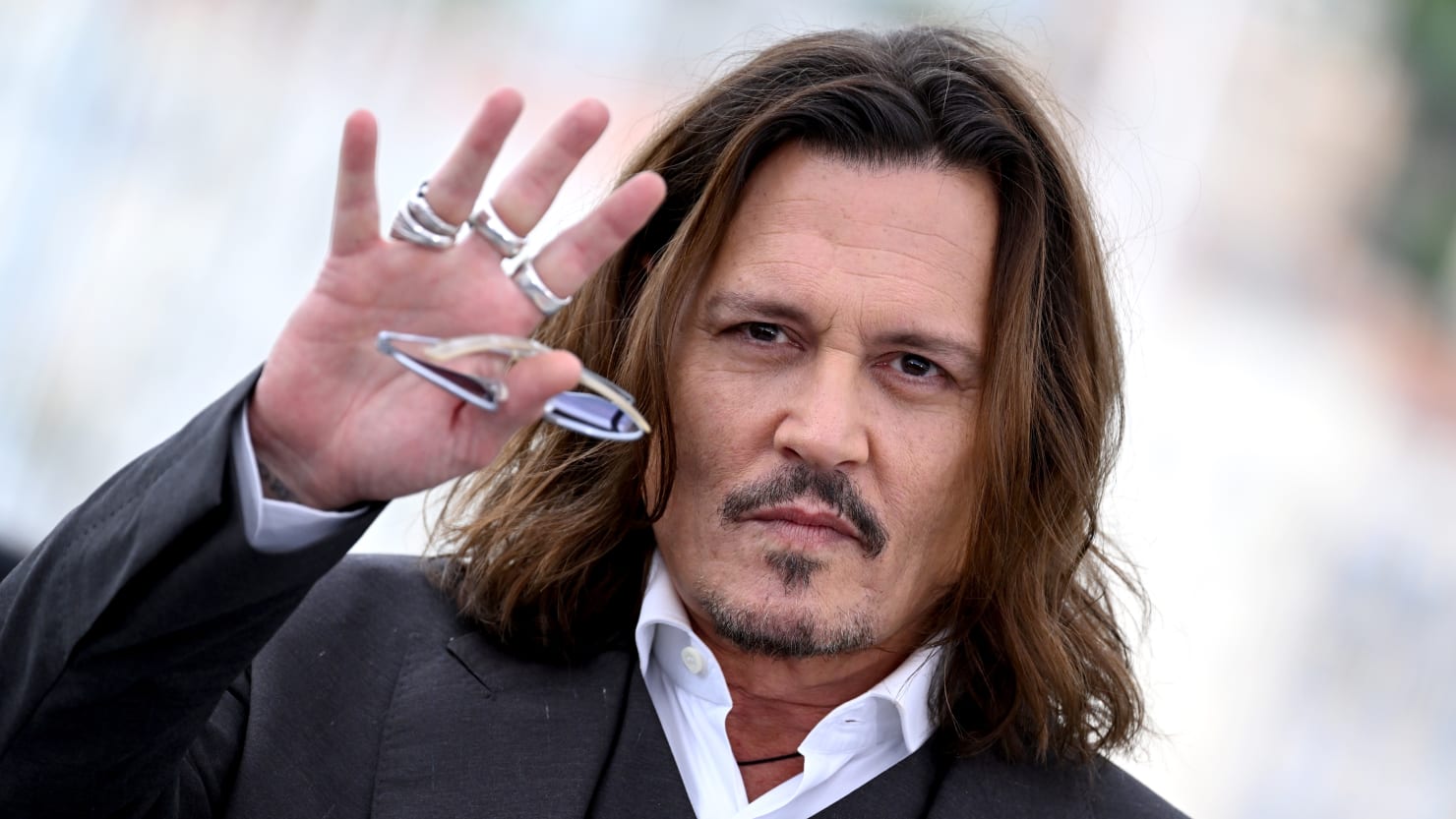CANNES, France—There was really only one person anyone could talk about on the first day of the Cannes Film Festival. Sure, there were titters about snagging tickets for the new Martin Scorsese movie or getting in to see Indiana Jones, but mostly the name on everyone’s lips was Johnny Depp.
The festival had programmed Jeanne du Barry, featuring Depp’s return to the screen following his defamation trial with Amber Heard, as its opening night film. Would Depp show up? (Yes.) Would fans? (They did.) Would controversy? (Yes.)
Even beyond the obvious, Jeanne du Barry—directed by, starring, and co-written by French actress Maïwenn—comes laden with baggage.
There is, of course, the aforementioned highly publicized and vicious case Depp brought against his ex-wife Heard for her allegations of abuse in a Washington Post opinion piece. He won that legal battle, but it came after he lost a 2021 libel case in the UK over a The Sun story calling him a “wife beater.” Unrelated to all of that, there were claims he fought with Maïwenn on the set of Jeanne du Barry over his lateness on set. They were reportedly “screaming” at each other.
Not that Maïwenn doesn’t have her own problematic behavior trailing her. She admitted to spitting in the face of an investigative journalist whose outlet reported on the accusations of rape against her ex-husband, the director Luc Besson, who she began dating when she was 15 and he was 32.

Stéphanie Branchu/Why Not Productions
Her cavalier attitude to assault was also evident when she brushed off the allegations against Depp saying, “Very quickly I said, he lost the first trial, he won the second. We could say it was one person’s word against another. I didn’t feel I had the right to judge.” It’s all in line with her general opinions about #MeToo, which are fervently anti.
Questions about the festival’s choice to feature Jeanne du Barry swirled around the Croisette as visitors from around the world descended on this seaside tourist town. Festival director Thierry Frémaux told journalists on Monday: “I don’t know about the image of Johnny Depp in the U.S. To tell you the truth, in my life, I only have one rule, it’s the freedom of thinking, and the freedom of speech and acting within a legal framework.” The next day jury member Brie Larson, who was a Time’s Up member, was asked during a press conference about whether she’ll see the movie. After questioning why this was directed at her, she said, “You’ll see, I guess, if I see it.”
Sure enough, she was on the red carpet for the opening night ceremony with the rest of her jury. Cameras broadcasting the festivities cut right from Larson to Depp signing autographs for fans camped outside of the Grand Theatre Lumière screaming his name. Someone shook a DVD of The Tourist in his face. Others stood from a balcony with hand drawn signs declaring their love. (Unclear if Larson stayed through the screening.)
With all that being said, uh, how’s the movie, you ask?
Confusing? Misguided? Maybe the most pro-French monarchy movie you’ll ever see? (Sorry, Marie Antoinette.) But none of that really has to do with Depp beyond his very casting. Depp is essentially a nonentity in the movie. Acting in French, he plays Louis XV with barely any personality. Though I admittedly tensed up when he first appeared, but soon my eyes started to glaze over whenever he was on screen, mainly because he wasn’t really doing anything. His dialogue is minimal—perhaps because of his lack of fluency in the language—and his role is very much secondary to the star, Maïwenn herself, who plays his beloved mistress Jeanne du Barry.
As a Johnny Depp text, there’s not much to the film. As a Maïwenn text, it’s sort of fascinating. Maïwenn plays her historical heroine as a woman who defies her class to rise in rank through deft use of both her intelligence and sexuality, but even as she gains status she remains fully and happily devoted to most of the men in her life. The only male character that doesn’t receive that courtesy is her eventual husband Jean, who abuses her briefly in a scene that would be upsetting regardless but is even more so given everything we know about the people in this production.

Stéphanie Branchu/Why Not Productions
Other women in the film, including Louis’ daughters and Marie Antoinette, are largely portrayed as either nasty bitches or silly creatures who envy Jeanne for her style and her sway over the king. There’s a real you hate me because you ain’t me thing going on, which is eyebrow-raising in the context of Maïwenn’s lack of allyship.
Beyond that, the movie is politically fraught. In one excruciating scene, the king gives Jeanne a quote-unquote gift of a Black boy named Zamor. Maïwenn clearly wants us to read Jeanne as benevolent for taking the child under her wing and making him a page instead of a slave, but it still reads as incredibly racist and patronizing. Meanwhile, though title cards at the end reference Jeanne du Barry’s death by guillotine during the French Revolution, the conflict is basically shrugged off as a nuisance.
All these issues didn’t stop the audience at the premiere from apparently loving the film. (I was watching in a theater next door, where the reaction wasn’t nearly as vocal.) According to Variety, there was a seven-minute standing ovation at the Lumière, during which Depp got teary-eyed.
But the chaos continued. The next morning, after a 20-minute delay, a moderator announced that the press conference for the film would begin without Depp, who also did not appear for the traditional photocall before. After a wait of a couple of minutes, Maïwenn and other cast members filed in, still sans Depp. He arrived at 12:42 p.m.: Three minutes before the conference was originally scheduled to end. His entrance was met with applause.
He fielded a couple of softball questions, until he was asked if he still felt boycotted by Hollywood as he had once claimed. Then he took an immediately defensive, but also rambling tone filled with bizarre jokes and verbose posturing. He said he had felt boycotted because he was asked to resign over what he called, “merely a bunch of kind of vowels and consonants floating in the air,” referring to his firing from the Fantastic Beasts franchise.
He continued: “Do I feel boycotted now? No, not at all. But I don’t feel boycotted by Hollywood because I don’t think about it. I don’t think about Hollywood. I don’t have much further need for Hollywood, myself.”
Later, in response to a question about the media coverage at Cannes, calling what people have read about him for the last five or six years “fantastically horrifically written fiction,” he implored people to focus on the movie. “We’re here to talk about a film but it’s like asking a question, ‘how are you doing?’ but what’s underneath in the subtext is ‘god I hate you,'” he said.

Stéphanie Branchu/Why Not Productions
A series of strange analogies followed when he was asked about people who feel he should not be at the festival: “What if one day they did not allow me under no circumstances, no matter what. I cannot go to McDonald’s for life because somewhere if you got them all in one room there would be 39 angry people watching me eat a Big Mac on a loop. Just for fun. Who are they? Why do they care?”
Despite his vaguely disguised displeasure, he did not feel like he was making a “comeback.” “Maybe people stopped calling out of whatever their fear was at the time, but no, I didn’t go nowhere,” he said. “I’ve been sitting around.” And, for what it’s worth, at least in France he was greeted like the celebrity he once was.
Keep obsessing! Sign up for the Daily Beast’s Obsessed newsletter and follow us on Facebook, Twitter, Instagram, and TikTok.
This post originally appeared on and written by:
Esther Zuckerman
The Daily Beast 2023-05-17 14:43:00

